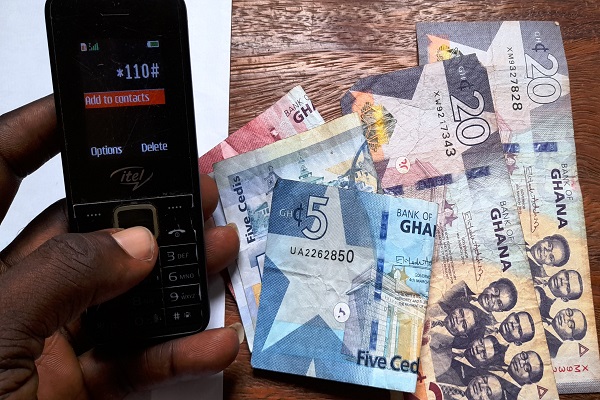Director of the Institute of Statistical, Social and Economic Research (ISSER), Prof. Peter Quartey has intimated that Ghana will be better off with revenue from the e-levy than resorting to the international monetary fund for support.
Speaking on the Super Morning Show, on Wednesday, he noted that in spite of the negatives, the e-levy will provide substantial revenue for the state at a time when the country is going through economic hardships and has been downgraded by Fitch and Moody’s.
He opined that it is prudent for the state to raise its own revenue than resort to the IMF which will propose "harsh" measures that will not augur well for the economy.
“You'll recall that when we suffered the downgrade, one of the reasons was the fears that we'll not be able to meet the needed revenue, so there's going to be a revenue gap, but e-levy comes in to balance.
“Having passed the e-levy will give some sort of assurance that revenue gap will be plugged in one way or the other, perhaps not fully, but at least there's some revenue that will be realised from this,” he said.
He further argued that at a time when youth unemployment is still very rampant, it wouldn’t be safe to comply with an IMF recommendation of freezing employment, should that be part of proposed measures, by the Britton Woods institution.
“I don't think it will augur well for us as a developing country. So if we can find ways to raise revenue and create revenue, I think it’s better than when we go for some of these harsh measures," he stressed.
His statement was in reaction to the passing of the Bill by Parliament on Tuesday, March 29, 2022.
Despite the benefit the Professor highlighted, he said one factor that can deter consumers from patronizing transactions affected by the levy is the rate charged, which is 1.5%.
“If you're going to tax, you ought to be very careful with the rate at which you tax since there are other options and as for me, this is why we recommended that a rate below 1% is something that most consumers will cope with, but as the rate increases, be rest assured that people will find alternatives and you may not be able to realise the revenue earmarked,” he said.
Parliament on Tuesday, March 29, 2022, approved the controversial Electronic Transactions (E-Levy) Bill.
This decision was reached after the Consideration Stage was completed by a Majority-sided House.
It was considered under a certificate of urgency.
The Bill was adopted at a reduced rate of 1.5% from the initial 1.75% amid a Minority walkout.
President Akufo-Addo is expected to assent to the Bill for it to become law.
Latest Stories
-
Hard work, not betting, will secure your future -Mobik Energy CEO advises Tarkwa Youth
7 seconds -
GIA boss debunks claim payment misconceptions as ‘Street Insurance Campaign’ educates public
18 minutes -
Asempa FM’s Ekosiisen supports renal patients with GHS100K, urges gov’t to absorb full cost of dialysis care
34 minutes -
WAFCON 2024: We have ‘good options in attack’ – Bjorkegren backs Queens to improve goalscoring
34 minutes -
Vice President convenes strategic stakeholder meeting on Women’s Development Bank
42 minutes -
Bawumia visits Hawa Koomson after violent attack during Ablekuma North rerun
44 minutes -
Bawumia visits assault victims in Ablekuma North rerun; pledges support
47 minutes -
Mahama charges Transport Minister and Attorney-General to resolve unauthorised shipping charges
51 minutes -
Mahama engages freight forwarders on 24-Hour Economy
51 minutes -
NFFA elects Michael Kwetey Tetteh as its president
2 hours -
NPP outlines guidelines ahead of 2025 National Delegates Conference
3 hours -
Ken Ofori-Atta’s extradition: FBI clears first major hurdle – No witch-hunt
3 hours -
NDC executives deny involvement in rogue anti-galamsey taskforce
4 hours -
Bailiff jailed four years for forging judge’s signature
4 hours -
“Oil funds for ‘Big Push’ will be efficiently used,” Mahama assures
5 hours

